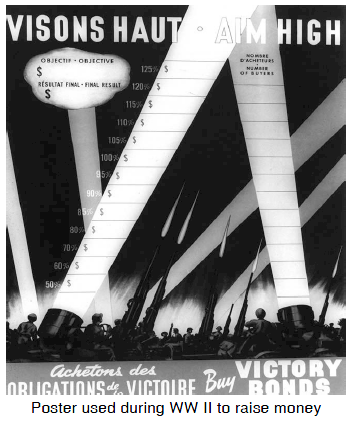John Maynard Keynes was a British economist who said that governments should cut taxes and spend money during a depression to stimulate the economy even if it meant going into debt.  By spending money on large public works, this strategy would put money into the hands of consumers who would spend it and start the cycle of recovery. The Second World War seemed to prove his point. Suddenly governments were spending money and everyone had a job after ten years of unemployment and depression. This idea of
By spending money on large public works, this strategy would put money into the hands of consumers who would spend it and start the cycle of recovery. The Second World War seemed to prove his point. Suddenly governments were spending money and everyone had a job after ten years of unemployment and depression. This idea of
"deficit: the amount by which
government income falls short
of government spending in a
given year. To make up the
shortfall governments borrow
and this is added to the debt.deficit" spending, or spending money you don't have, caught on in a big way with governments even after the war. Unfortunately they forgot the other side of the Keynesian coin, which said that in good times a wise government should increase taxes and save its budget surpluses to build up reserves for future down cycles in the economy.
